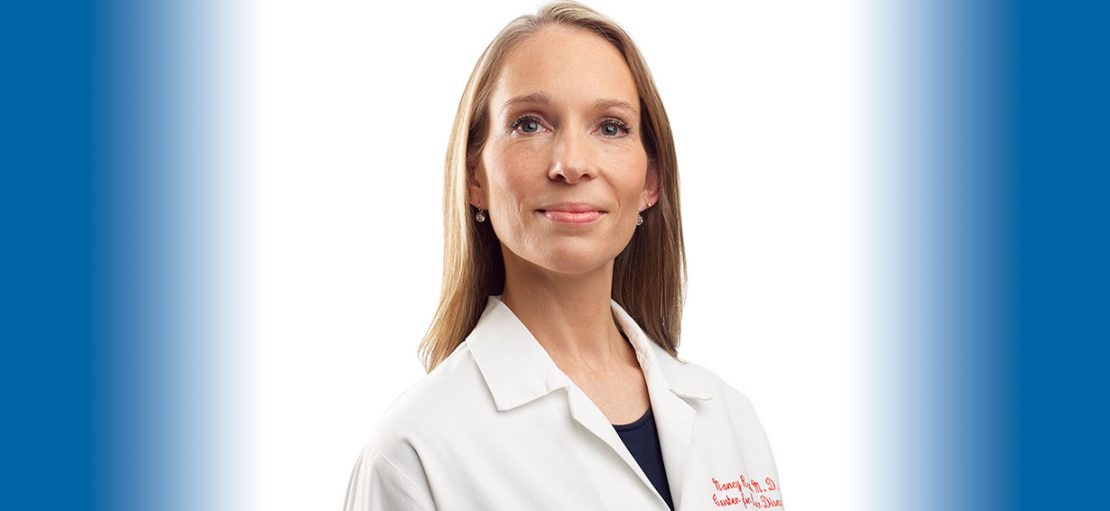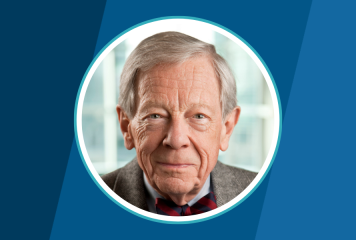Nancy S. Reau, MD, is dual board certified in Gastroenterology and Transplant Hepatology, specializing in viral hepatitis. She is the Richard B. Capps Chair of Hepatology and Section Chief of Hepatology at Rush University Medical Center in Chicago, where she also serves as Professor in the Department of Internal Medicine and Associate Director of Solid Organ Transplantation.
Dr. Reau served on the ABIM Gastroenterology Board from 2017 to 2019; she now serves on the Gastroenterology Approval Committee for the traditional, 10-year MOC exam and initial certification exam.
How did you become a hepatologist?
In medical school, I always gravitated toward neurology, knowing that I’d come from a neuroscience background in undergrad and had planned on becoming a neurologist. But halfway through my intern year, I realized that—although neurology was fascinating on paper—I didn’t have the passion for it and that it wasn’t going to make me as happy as some other things. Fortuitously, someone in the GI track had dropped out of the fellowship and an attending suggested that I could take the spot, if I wanted to become a gastroenterologist. I liked gastroenterology, but I really like hepatology—which, admittedly, is a little closer to neurology—and did my third year in transplant hepatology. I never looked back.
You’ve contributed significantly to the body of research in your field. What drives your research interests?
If you’re in a training program where you’re constantly forcing people who are learning from you to ask questions, you realize there are questions to which we don’t actually know the answer, or the accepted answer is not necessarily evidence-based. I think it’s that quest to make sure our trainees are still being inquisitive that leads me to do the type of research that I do, which is predominantly in hepatology. I’m looking at implications to the standard of care, populations that may not have been well represented in the research. And I’ve had a lot of help. It’s rare that there’s only a single name on any of my papers. We’re trying to help the next generation of physicians become good, inquisitive doctors.
What do you see as the most important issue in the field of hepatology?
I hate to call it standardization because there’s never a one-size-fits-all, but I think understanding what your standard of care is and where it’s no longer applicable is important. If a new drug development makes the prior standard of care irrelevant, then we need to push to change that, challenging things like insurance restrictions and preconceived ideas that are no longer valid so that these remnants of bad medicine don’t continue into the future.
Part of how we address that is through guidelines, and part of that is through making sure your trainees remain up to date. ABIM has been incredibly forward-thinking in outlining board certification as a way to demonstrate that you are on a quest of lifelong learning. And although not all of us want to think that board certification is the prize for that, lifelong learning is one way of demonstrating that you continue to remain accurate and that you’re not practicing medicine that you learned when you were training—that you’ve evolved with the development of technology and the patient population.
If we don’t remain inquisitive, like we’re asking our trainees to be, and if we aren’t pushing the standard of care, then we’re practicing bad medicine.
What has changed for women who are entering the field of medicine now that wasn’t the case when you entered practice? What challenges still exist?
I think that medicine has changed a lot, whether it’s from a diversity perspective or from the point of view of women in medicine. There’s a recognition now that to be a physician, you have to have a more balanced life. When I was in early training, it was still fairly standard that you lived, breathed and existed solely for your patients. Medicine has shifted away from that to at least the idea that a work-life balance is important.
Women in medicine still make less money across the board, and still bear the brunt of raising a family—for good reasons as well as others—and this is still a hurdle. I see many successful residents and trainees who can’t build their CVs as robustly as their male colleagues because they don’t have the time and resources to work on academic achievements when they’re trying to balance that with raising a family. That’s one of many things that contributes to why there aren’t as many women in leadership in medicine. Some institutions are recognizing this and have been more creative than others in making a change that puts women in medicine at more of an advantage or offers flexibility.
Why did you want to serve on the ABIM Gastroenterology Approval Committee?
It was a huge honor to be asked in the beginning. The Gastroenterology Board was my very first role with ABIM and now serving on the Approval Committee, it’s an incredible compliment that someone chose me to write questions that reflect what our trainees and physicians should know to represent the field of medicine well. I’ve also met a lot of really great people through ABIM, and it’s always a good educational experience to learn how to write good questions.
Because the board certification process is so valuable, I want to make myself available to be a good resource for ABIM. And while I want to be useful in the contributions I make from my own subspecialty, the more of us that get together to look at the content, the better it will be.
My participation with ABIM allows me to do something I like and exercise a skill set, and to use it to help people who think board certification and the lifelong learning model are important.
As a member of ABIM Governance, what do you want diplomates to know?
It’s important for diplomates to realize that the backbone of ABIM is people—when you call or when you’re answering an assessment question, it wasn’t computer-generated or written to make diplomates suffer. We are in the trenches and we are motivated to help ABIM make the MOC process better. ABIM has not always been perfect but we are working to make sure that our resources and activities reflect what diplomates need. We are real people doing the job and writing questions, and we are motivated by knowing that other people find this valuable the same way we do. We want to create a tool that will push medical education forward.



